Several years ago, Martin Scorsese read Die, My Love in his book club. The novel, by Argentinian author Ariana Harwicz, follows an unnamed woman who moves with her husband to the middle of nowhere in France. Isolated and frustrated, she battles the confines of marriage and motherhood. She introduces herself to the reader as “a nutcase”, as “someone beyond repair”. She sets fire to ants, swears at her child, complains of its “constant clucking and grousing”. She speaks the unspeakable: “I’m a mother, full stop. And I regret it, but I can’t even say that.”
Scorsese subsequently sent the novel to Jennifer Lawrence’s production company. He was convinced that Lawrence could – should, must – play the mother. In turn, Lawrence and her producing partner, Justine Ciarrocchi, only ever had one film-maker in mind: Lynne Ramsay, the Scottish director who has exhibited a preoccupation with the dark side of parental responsibility and family dynamics throughout her career.
On its release in 1999, Ramsay’s first film, Ratcatcher, won rave reviews and comparisons to the social realism of Ken Loach and Terence Davies. An unflinching excavation of how truth and fantasy blur for a 12-year-old boy after he accidentally drowns another boy in a grimy Glasgow canal during the bin strikes of 1973, it remains one of the greatest debuts in UK film.
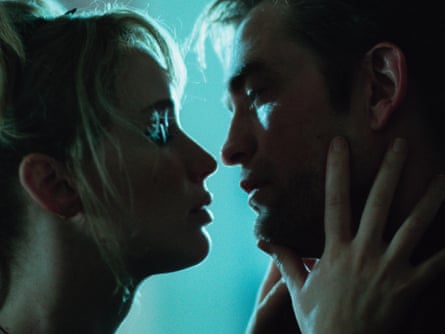
Ramsay went global with her third feature, 2011’s We Need to Talk About Kevin. Adapted from Lionel Shriver’s novel, the film imagines the terrible result of a failure to connect with your child. In this instance, the teenager commits a Columbine-style massacre but can’t be tried as an adult. The blame is thus directed at his mother, Eva – played memorably by Tilda Swinton – who suffered from postpartum depression. When baby Kevin refused to sleep, she told him that “Mommy was happy before Kevin came along”.
Ramsay is very good at telling us the unpleasant truths we’d rather not hear. Still, she initially shied away from what the New Yorker referred to as the “motherhood horror” of Harwicz’s Die, My Love. “Jennifer got in touch with me out of the blue – we’d never met – and asked if she could send me a copy of Harwicz’s novel,” explains Ramsay. “It’s a beautiful piece of writing, but I wasn’t sure how I could adapt it; it’s quite surrealist, and you don’t know what’s real and what’s not. But Jennifer was very keen and Justine said I should just give it a shot. It was flattering, but …”
But you can’t be flattered into anything? Ramsay – who is sitting opposite me in an office space in St Pancras in London, wearing a black trouser suit, black boots, a black hat and a white shirt – smiles and shakes her head. Still, she continued talking to Lawrence about how far she might go as the mother. “I suppose I was wary because I didn’t want to make a film like We Need to Talk About Kevin again, but Jennifer was pretty willing, saying that she wanted to go all out, to see where the role might take her.”
Aesthetically, We Need to Talk About Kevin and Die My Love are very different; both films were shot by Seamus McGarvey, the earlier film in CinemaScope (widescreen) while Die My Love uses the Academy frame (using the 1.33:1 aspect ratio to limit perspective). Ramsay explains that “Die My Love felt very much like a portrait film, whereas Kevin was a [metaphorical] dance between Kevin and his mother.” She also realised that “the unnamed mother and her husband still love each other. There’s a satellite love story at the heart of the film, even if those two characters don’t get each other. And, of course, the mother is feral and unapologetic, which is still cutting-edge. That was my way in.”
She co-wrote a script with Enda Walsh (who wrote Hunger with Steve McQueen) and Alice Birch (a playwright and screenwriter best known for Normal People and Succession). Scorsese came on board as a producer, Lawrence was cast as Grace; Robert Pattinson as her husband, Jackson; Sissy Spacek as Jackson’s mum; and Nick Nolte as his dad. In Die My Love (the comma removed, giving the title more force), Grace and Jackson relocate from New York to a house in the rural American west, close to Jackson’s parents.
The film is a magnificent meditation on motherhood and its travails. Lawrence is terrific and likely to be Oscar nominated for a fifth time in January. She has nowhere to hide in the film and is committed to the role in a way that makes you forget she’s a hugely bankable Hollywood star. At first, Grace and Jackson can’t stop gleefully having sex and dancing with abandon in their new house – they can listen to music as loudly as they like since there are no neighbours – but then the child arrives and the dynamic changes. He is away for work, she is stuck at home, a writer unable to work with the pram in the hall, masturbating because Jackson is no longer interested, fantasising about a neighbour (LaKeith Stanfield) and, in one particularly funny scene, lashing out at a mother in denial of the loneliness and boredom of motherhood.
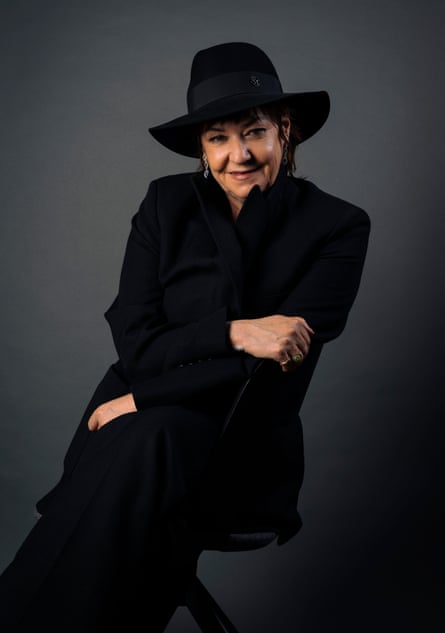
When Sissy Spacek’s Pam says that all mothers are “a little loopy the first year”, it’s clear how reductive such comments can be; Grace later says that she doesn’t have a problem attaching to her son, “it’s everything else that’s fucked”.
If Die My Love has cinematic forebears, they are surely Badlands (Ramsay loves Terrence Malick’s 1973 film starring Spacek and Martin Sheen as a couple on a killing spree, and says “it was wild being on set with an actor as iconic as Spacek, who ended up being the glue that held the film together”) and the 1974 John Cassavetes film A Woman Under the Influence, in which Gena Rowlands, isolated and unsettled alone when her husband is at work, finds herself on the brink of madness. “The Cassavetes film is about the epic in the everyday, what’s going on behind the scenes, under the surface. As Peter Falk’s Nick loves Gena Rowlands’s Mabel, so Jackson loves Grace, but neither man knows what to do with his woman.”
When Die My Love premiered at Cannes earlier this year, critics were quick to decide that Grace has postpartum depression. Lawrence, who was five months pregnant with her second child when shooting the film, has spoken of the “extremely isolating” postpartum period of motherhood, in which “you feel like an alien”. Meanwhile Ramsay, who is private about her personal life (she has one daughter), tells me that she identified with Grace’s innate strength and creative struggles. “I related to her writer’s block, to her sex life going totally to pot and other universal struggles, but I didn’t approach the project thinking Grace only has postnatal depression. It has to be more layered than that.”
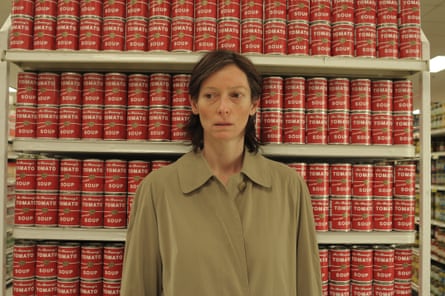
It seems to me that Grace is just trying to feel something. She smashes her body up against a glass door, turns up to social events wearing inappropriate clothes, says the wrong things and, in one glorious scene, crawls through the long grass on her hands and knees, growling at Jackson – all because she wants to get rid of that numb feeling that can come with isolation. “There’s a truth in Grace cutting through the bullshit with people that appeals to me,” says Ramsay. “I found it really funny when she says it like it is.”
Ramsay admits that she has “definitely dealt with darker characters” like Grace and the Joaquin Phoenix character Joe in her 2017 film You Were Never Really Here, who suffers from PTSD: “I think people understand more about mental health than they did a few years ago, but it’s important that I don’t apologise too much for characters like Joe or Grace.” She often pushes actors to their limits – Samantha Morton has said that, when filming Morvern Callar, “Lynne was like some mad composer defining and tuning the composition and my movement” – but Ramsay insists she is very aware of her duty of care. “It’s all about trust. If there’s trust, which you build up through conversations about character and story in prep, you can go to places that are unknown and exciting. We had five weeks’ prep ahead of a 35-day shoot for Die My Love and I’ve learned to get tricky scenes out of the way. In fact” – she starts laughing – “we did the sex scenes on the first day.”
On the first day! “It was a risk, but it broke the ice. Jennifer and Robert, who hadn’t worked together before, really clicked. They just had chemistry, which was brilliant.” During the prep period, Ramsay sent the pair to dance lessons, “just to get them in sync. Robert has never played a role [like Jackson] before, but he was up for it. There’s something really soulful in him as an actor that I love. He hangs out with the crew, and he’s generally really approachable.” Ramsay says an intimacy coordinator was present “at first”, but that Lawrence and Pattinson “know the drill”, which is a little vague. “I’m sure they were both nervous ahead of the sex scenes – I was nervous, too – but it was a closed set with just me and the cinematographer Seamus McGarvey, and there was, as I said, that trust.”
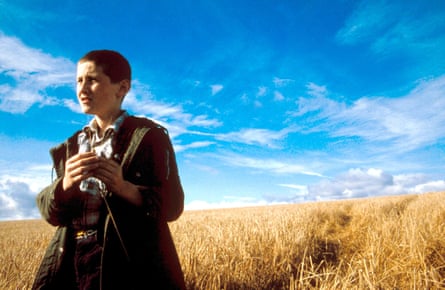
Ramsay works particularly closely with her cinematographers because she almost became one herself. Born in Glasgow, she studied photography at Napier College, Edinburgh before applying to the Royal College of Art. She “did a crap interview”, was rejected and applied instead to study cinematography at the National Film and Television School (NFTS) the night before applications closed. She was offered a place and was quickly told she sounded more like a director than a cinematographer. In 1996, Ramsay made her first short, Small Deaths. It won an award at Cannes; her third short, Gasman, won at Cannes too and also picked up a Bafta nomination. On the back of the three shorts, Ramsay was asked to write a treatment for a feature film, which became Ratcatcher. “I was only four during the bin strike, but I remember it as a time of terrible turmoil in Britain. It was magical for kids because it was lawless, like a fairytale.”
I ask if Ratcatcher is like Loach’s Kes – the one film of hers that, despite an impressive oeuvre, everyone knows and loves. She shrugs. “Every film I make is different because I’m always trying to experiment. They are all trying to explore a different aspect to humanity.” She is excited, for example, that her second film, Morvern Callar, starring Samantha Morton as a Scottish woman dealing unpredictably with the aftermath of her boyfriend’s suicide, is reaching a new audience of young women. At one point early in her career, she says that the only working-class film-makers she knew of were herself and Shane Meadows, but she otherwise refuses to be drawn on class, insisting that “if you’ve got a great idea for a film and you can persevere, you can make it happen”.
Yet Ramsay has only made four films since Ratcatcher, which she blames partly on the pandemic and partly on the “unpredictability” of the film industry. She famously had a hellish time with The Lovely Bones; she bought the rights to Alice Sebold’s book when it was still being written, but then the book became a global hit and Peter Jackson ended up writing and directing it (it was a critical flop when it finally came out in 2009). Ramsay told the Guardian in 2011 that “the levels of misinformation and outright bullshit surrounding that film were fucking Shakespearean”. In 2013, she walked away from Jane Got a Gun, a western, at the 11th hour, saying that, unbelievably, some people involved asked if she was on her period, before citing creative differences. When I ask about the time wasted on these projects, she will only say that “protecting my own voice is important to me”.
These are tricky times for indie film-makers and Ramsay, with her singular vision, is something of an outlier. When I mention the fact that Mubi acquired the rights for Die My Love for $24m at Cannes, she puts her head in her hands. “It was unexpected and weird,” she says, smiling. I ask what success looks like, and she immediately says: “A film that stands the test of time.” She loves it when people want to talk to her about her films because it means she’s made something that has lasted, in opposition to our throwaway culture.
Ultimately, she says, she still does her own thing. “Working in the film industry is tough, but I’ve always pushed myself as a film-maker.” She’s currently working on two scripts, an adaptation of the Margaret Atwood short story Stone Mattress, and a film for Margot Robbie’s production company LuckyChap about AI. “I can’t tell you more than that!” she says. “All I can say is that I might be a bit more pragmatic these days, but I’m still making films my way, sticking to my guns and holding on to my integrity.”
There is something punk at the heart of Lynne Ramsay’s work. At the end of Die My Love, Ramsay herself sings a cover of Joy Division’s 1980 single Love Will Tear Us Apart. It replaces the abrasiveness of the original with a gorgeous, tender vocal that somehow manages to suggest that yes, it will tear us apart, but at the same time, what will survive of us is love.
Die My Love is in cinemas from 7 November.

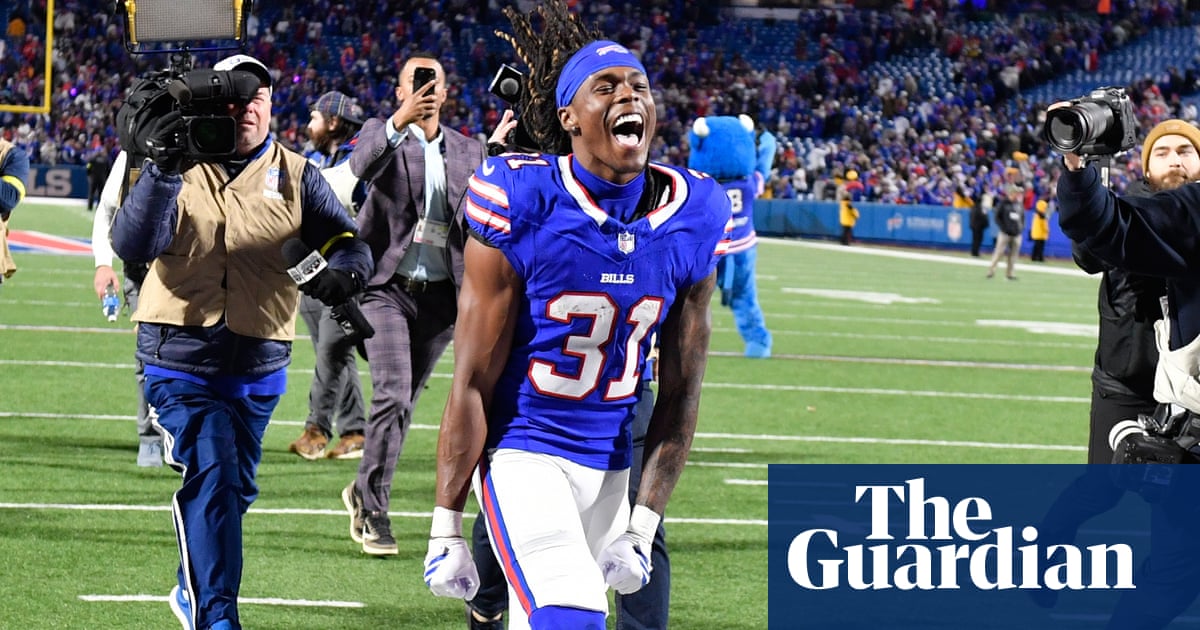
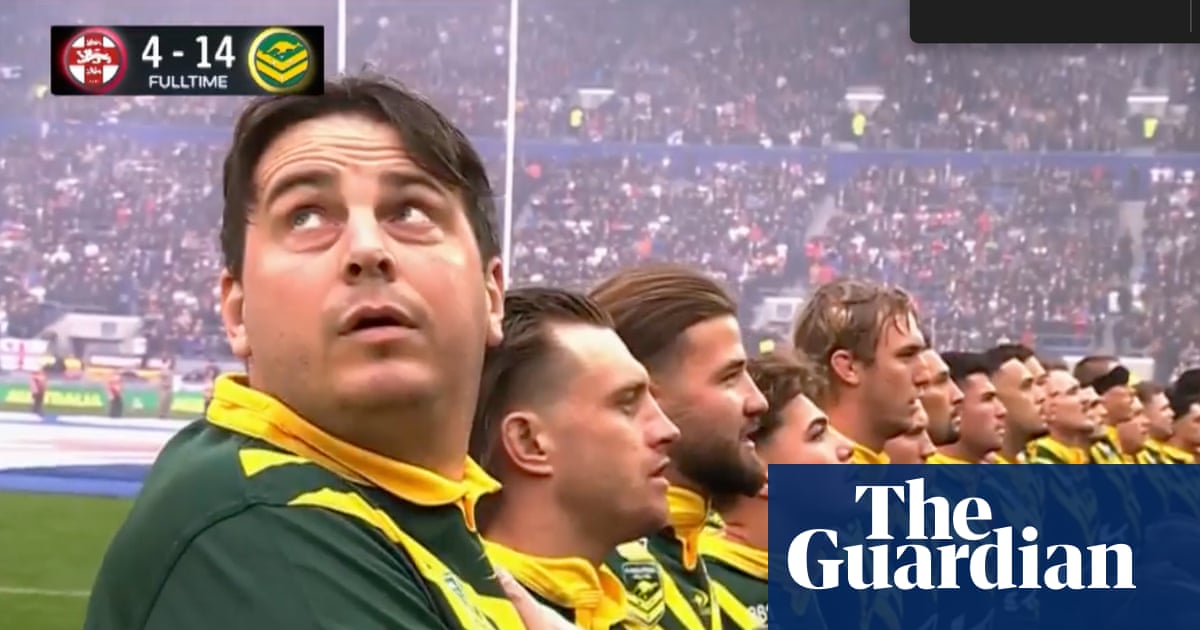
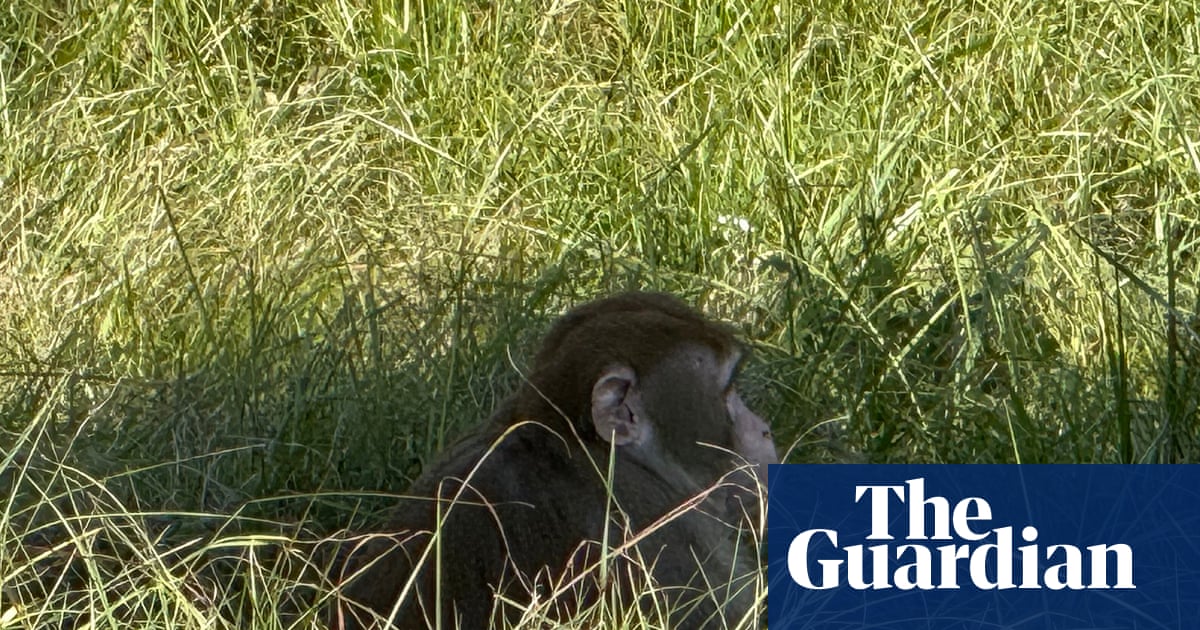
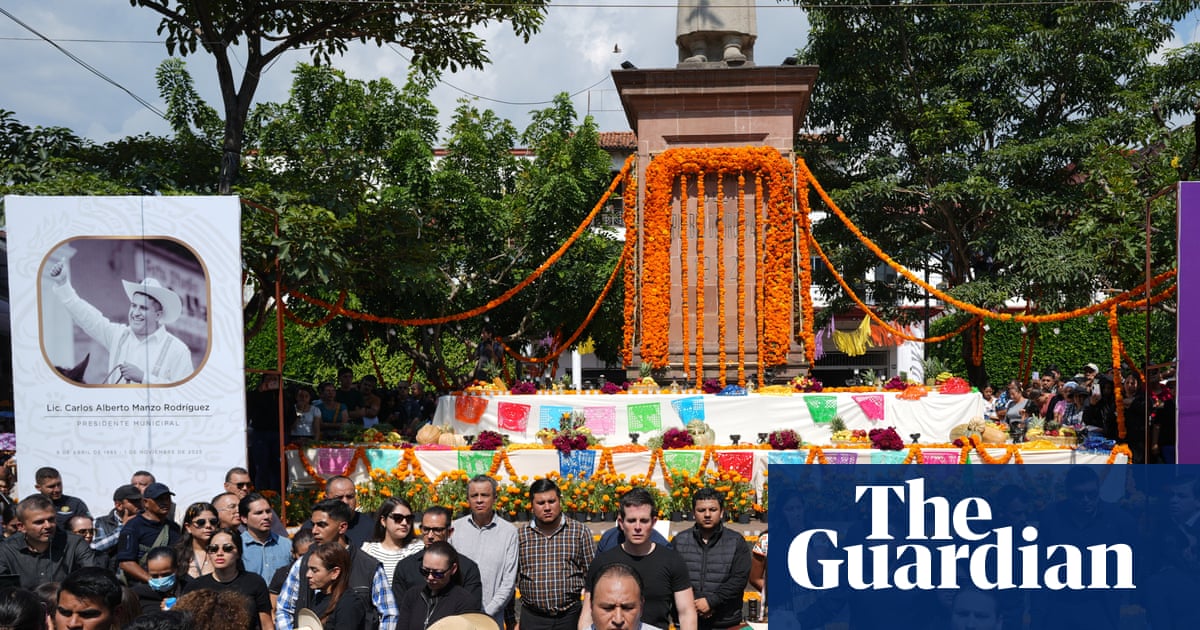
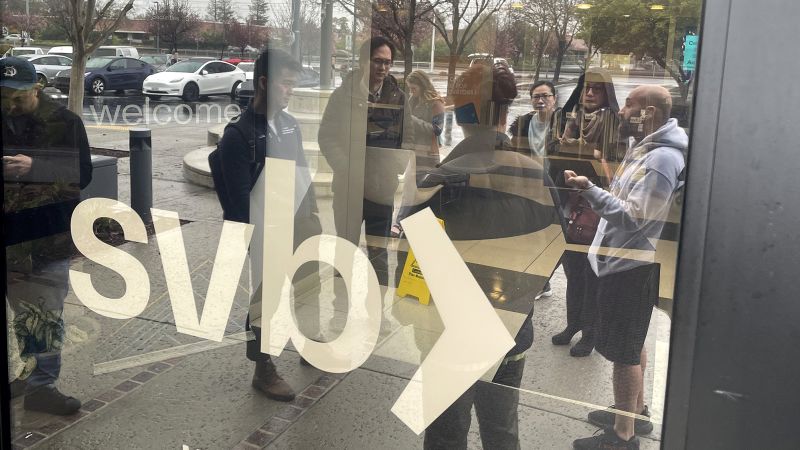
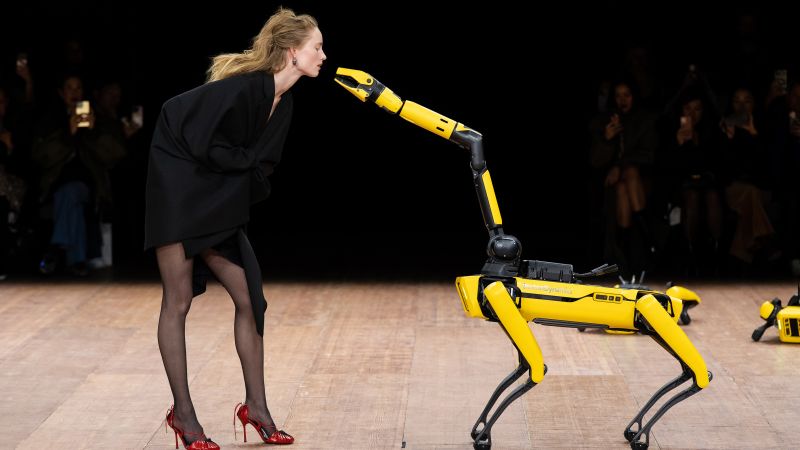
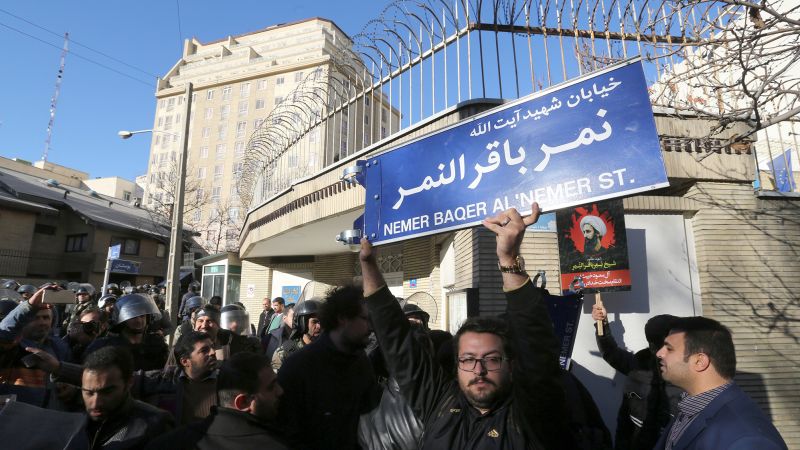
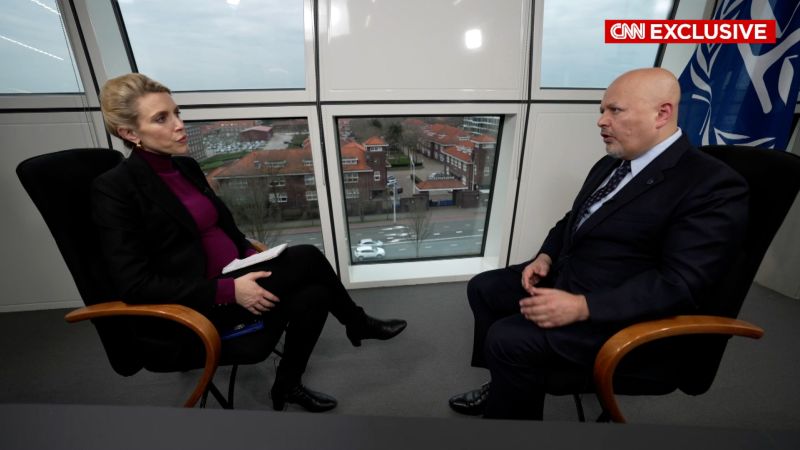
 English (US)
English (US)